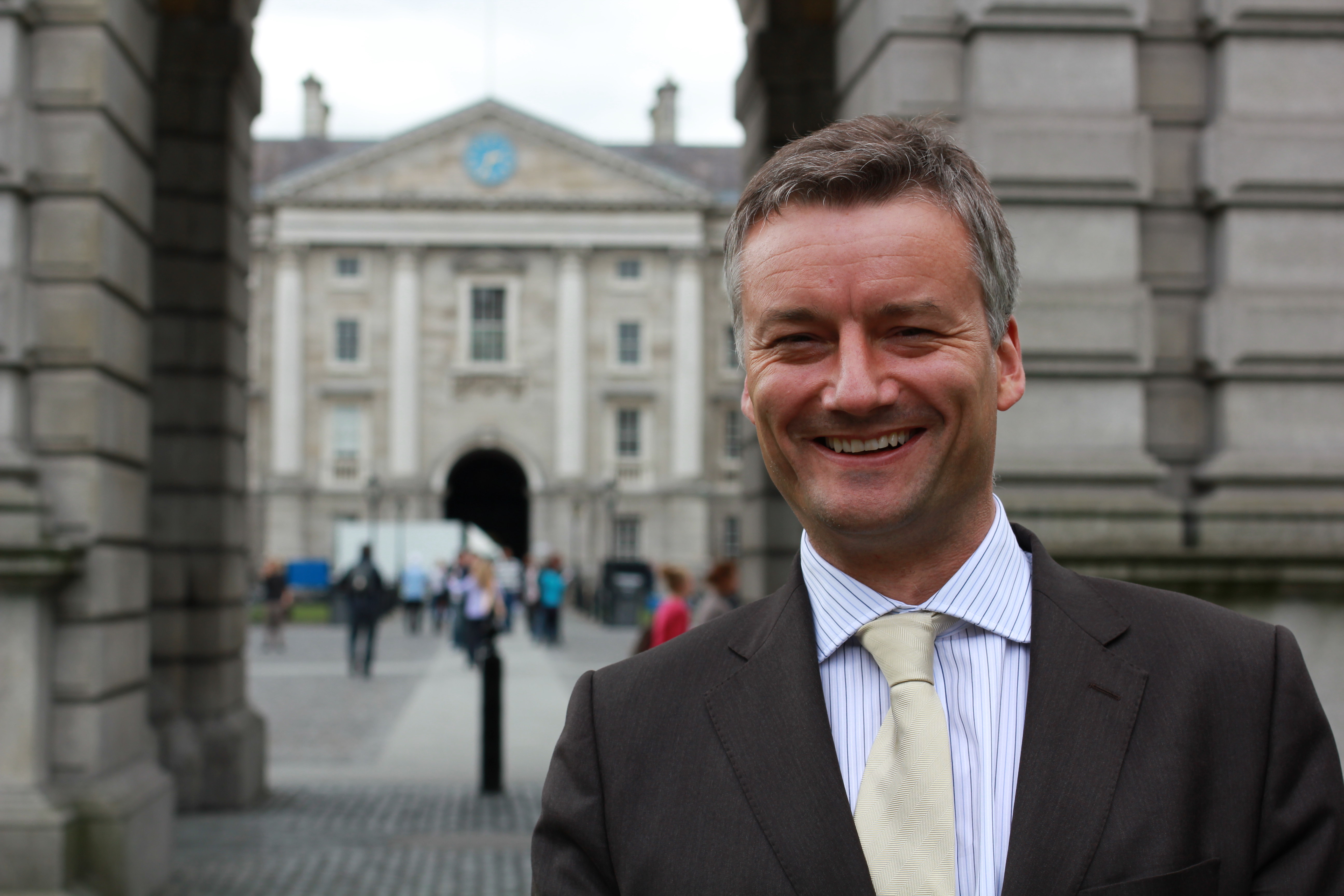James Prendergast
Deputy News Editor
- Provost waging “war of attrition” against officials opposed to slashed funding
- Lenihan feels “let down” by lack of consultation, regrets not taking direct action
Provost Patrick Prendergast refused to meet with the heads of the five capitated bodies to discuss unprecedented cuts to student services. Speaking to Trinity News, Tom Lenihan, SU President, said the request for a meeting was made by the Senior Dean shortly after an emergency meeting on 4th March with the Capitation Committee. The Provost only responded last Wednesday suggesting a meeting with Vice-Provost Linda Hogan instead.
“I am very disappointed the Provost would not meet with us, especially given the fact that he made the decision to cut us in the first place,” Lenihan said. Though he told Trinity News that the capitated bodies will seek to combat next year’s proposed cuts and reverse this year’s cut, Lenihan said that the cut of 3.75% to the five capitated bodies – Trinity College Students Union (TCDSU), the Central Societies Committee (CSC), the Graduate Students Union (GSU), Dublin University Central Athletic Club (DUCAC), and Trinity Publications – is likely to remain in place. “This is an exclusively Trinity problem,” he asserted. “I can find no college where there has been an increase in student numbers and a decrease in the capitation fee or core grant.”
Lenihan also criticised the lack of democracy at Board level. The new programme of “start governance” designed to “overhaul the committee structure in college” has, he said, diminished both the power of the Board and the importance of student consultation. “A lot of stuff is just rubber-stamped at Board,” he claimed. Lenihan said decisions are “done by consensus”, a consensus which is judged by the Provost, who is the chair. “We don’t have an independent chair, which is bad governance,” he added. Lenihan went on to say that College fellows have “less political clout” under Prendergast’s reign because “decisions are essentially initiated at subcommittee level” where neither the SU nor the fellows have representation. Decisions are then brought forward to Board, he said, and if there is any dissent it is argued that “this work has been done” and that further delay would involve costs. “Essentially if something is rejected by board it will be brought back and packaged in a different way until Board agrees,” he said. He claimed the Provost is engaging in a “war of attrition” against dissent. “The Provost will make comments and essentially it is recorded in the minutes that it is approved,” he added.
Lenihan said he is deeply disappointed by the lack of consultation over the issue of cuts to student services. “The Provost has let me down,” he said. “The executive officers have let me down. I never expected diplomacy would utterly break down, i.e. with people just not communicating with you.” Lenihan particularly criticised the provost for not consulting with students. “There was not one time this year when he consulted with students on anything.” Instead, he said, College is “spending vast amounts of money on absolute waste,” such as on the Identity Initiative and the Genesis Project. Lenihan described the Genesis Project – which its website says “aims to create an integrated, user oriented academic and student administration service, facilitated by a modern student information system” – as an “unmitigated disaster”.
Earlier this year, Lenihan told Trinity News that the SU was likely to take “some form of direct action” if the capitation cuts were not reversed. Not taking direct action is his “biggest regret” of the year, Lenihan told this reporter last Thursday. He said he had strongly advocated the move but that it would be “very difficult to sustain direct action” at this point due to looming exams.






